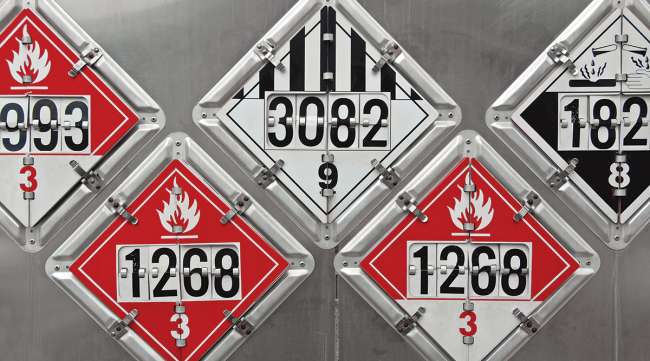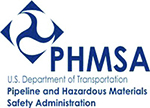Senior Reporter
PHMSA Exempts Hazmat, Secure-Cargo Carriers From California Rest Rule

The Pipeline and Hazardous Materials Safety Administration has pre-empted motor carriers hauling hazardous materials, explosives and security-sensitive cargo from California’s meal-and-rest-break requirements.
The agency said the state regulation creates an “unnecessary delay” in the transportation of hazardous materials and “compliance incompatibilities” with respect to operators carrying explosives and “security plan” materials.
“To ensure public safety, maintain security and reduce delays, PHMSA finds that California’s meal-and-rest-break requirements are pre-empted for all operators of motor vehicles transporting hazardous materials,” the agency said in a Sept. 20 Federal Register announcement.
Under the California requirements, an employee is entitled to a 30-minute meal period after five hours of work and a second 30-minute meal period after 10 hours of work. Also, employees are entitled to a 10-minute rest period for every four hours worked.

The agency’s ruling is in response to a 2016 petition by National Tank Truck Carriers, Inc., which argued that federal law should pre-empt state law.
NTTC had contended that the California requirements “were not promulgated with an eye toward safe transportation of hazardous materials,” creating the potential for unnecessary delay when a driver must deviate from his or her route to comply with the requirements. The trade organization also argued that state and federal rest-break requirements are in conflict and that the state law interferes with the requirement that carriers hauling security-sensitive loads are required to be in “constant attendance of cargo.”
PHMSA said six industry trade associations, seven petroleum distributors, four transport companies and three individuals submitted comments in support of pre-emption. Only the International Brotherhood of Teamsters opposed the petition.
California did not submit comments, PHMSA said.
“The commenters acknowledge that the health and safety of the driver might be a reasonable motive for requiring breaks but contend that the delays caused by the California requirements are not necessary or reasonable in the context of the transportation of hazardous materials,” the Federal Register notice said.
Those commenters in support of the NTTC application noted that many drivers transporting hazardous materials also are subject to the break requirements set by the Federal Motor Carrier Safety Administration that drivers take a 30-minute rest at least every eight hours.
American Trucking Associations said in its comments that a driver working an 11-hour day would have to make one stop for a 30-minute break under the federal rules. But under the California rules, ATA estimated that the same driver would have to take five breaks (two 30-minute meal periods and three 10-minute rest periods) over the course of the same work day.
“Furthermore, ATA reasons that since each break will entail a stop, the result would be four ‘arbitrary stops,’ in contrast to the [federal] HOS rule,” the PHMSA announcement said.
Commenters also argued that adherence to the California requirements would preclude motor carriers from including a “constant attendance” requirement in the en-route section of the security plans that motor carriers are required under hazardous materials regulations to develop when “offering, or transporting, certain hazardous materials.”
The Western States Trucking Association argued that the ability of truck drivers to simply pull over or find a safe place to park is not as easy as the proponents of California’s rule claim, especially when hazardous materials are involved.
The trade organization also said the California requirement “presumes the regulations were designed for employees working in more structured environments that are not subject to many of the external factors that impact the trucking industry, such as road and weather conditions, shipper/receiver delays, breakdowns of equipment, randomized vehicle inspections by law enforcement and traffic conditions.”
However, the Teamsters, who opposed the petition, contended in comments that California has determined that its break requirements are necessary “to protect the health, welfare and safety of drivers, and others on the roads, by ensuring that drivers are well-rested and attentive.”




